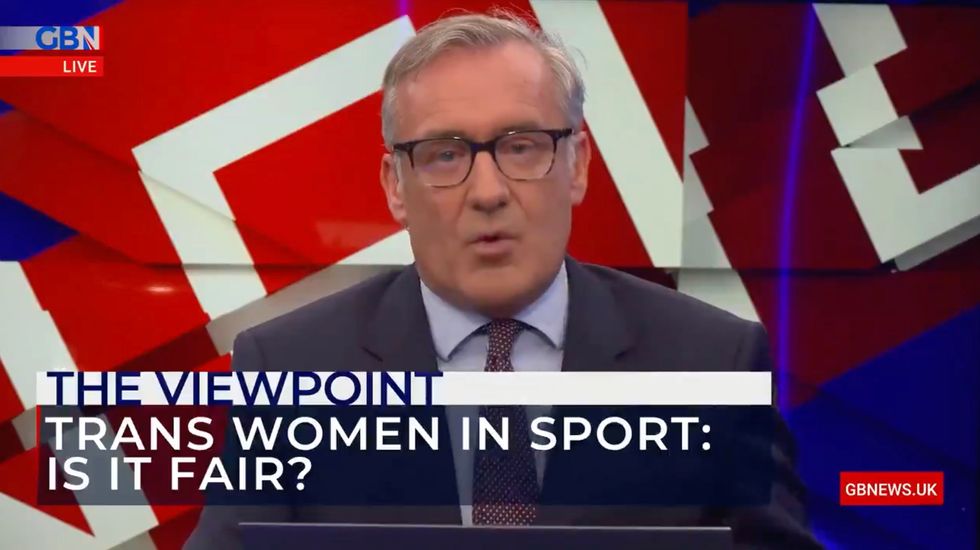Colin Brazier: Trans women in sport, is it fair?


One of my daughters is a pretty talented rugby player. She’s a tough competitor and is thinking about a career as an infantry soldier. I know people who think there’s no place for women on the rugby pitch or parade ground. I think they’re wrong. Times change.
But beware those who behave as if change is fixed on a course only THEY can chart. Those new priesthoods, who believe THEY have a monopoly on deciding what is progress and what heresy.Take campaigners for trans rights. Look at the way too many of them treat women, women who forged careers in sports originally built with men in mind.
A tennis champion like Martina Navratilova, denounced as a bigot for saying that men who compete as transwomen are “cheating”. Our own silver medallist swimmer Sharron Davies, accused of being a “trans-hating bitch” because she likened transwomen athletes to 1980s East Germans who won by illegally pumping their bodies full of testosterone.
Of course, neither Navratilova nor Davies faced rivals who started out life, and went through puberty, as men. But that is the reality facing a new generation of sportswomen. Take the case of 27-year-old Belgian Anna Van Bellinghen who was vilified by activists for having the temerity to describe as “a bad joke” the decision to let a former man compete directly against women in the Olympics, which start this week.
The joke she has in mind comes in the once-bearded form of a 43-year-old New Zealander called Laurel Hubbard. As Gavin Hubbard HE enjoyed limited success as a male-weightlifter, but after transitioning eight years ago SHE is now a regular on the women’s super-heavyweight podium.A Samoan woman she beat into second place in the Pacific Games a couple of years ago says, with obvious bitterness, that the unfairness is akin to doping. She pointed out that Hubbard had stronger bone density and muscle mass than a comparable woman, because most of Hubbard’s life has been spent as a man.
It was only in 2015 that the International Olympic Committee changed the rules so that any transwoman who has maintained a defined level of testosterone for 12 months can compete as a “self-identifying” woman. Anna Van Bellinghen, Hubbard’s rival, points out that the effects of testosterone stick around, just like the effects of steroids do even after athletes stop taking them. Last year scientists found that, on average, men were a third stronger than women at weightlifting. Even when transgender women suppressed testosterone for a year, as the Olympic Committee requires, they only lost about five per cent of that strength advantage.
But these are inconvenient scientific truths for a movement that sees every objection as an expression, not of scepticism, but of enmity and transphobia.Tens of thousands of people have signed a petition calling for Hubbard to be barred from the Olympics. Their misgivings will be dismissed because those in charge of Olympic sport have decided that change and progress is what a small group of deeply committed activists say it is.
These are the same people who described Anna Van Bellinghen as a “bitter whiner”, even though she’s gone out of her way to say she supports the transgender community, while adding that the principle of inclusion should not be “at the expense of others”.
That’s tonight’s Viewpoint.